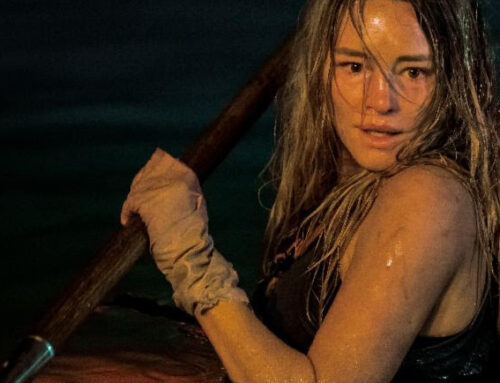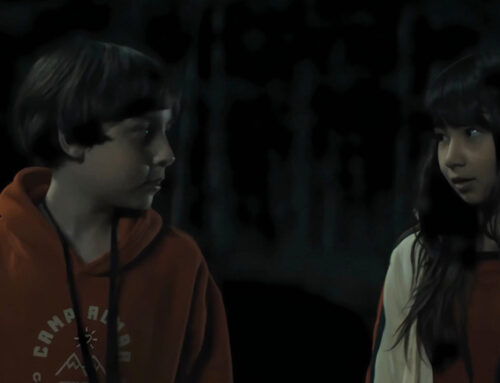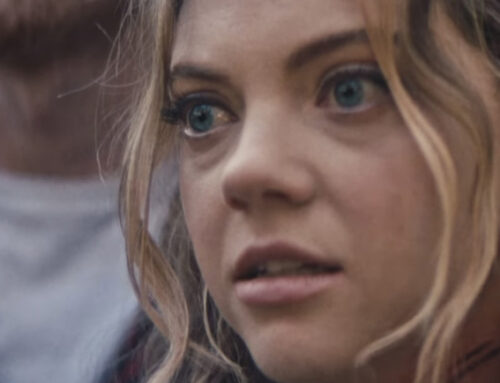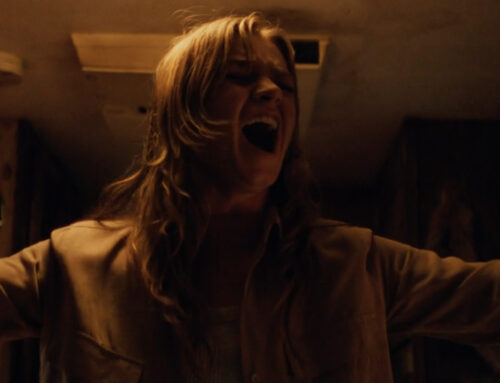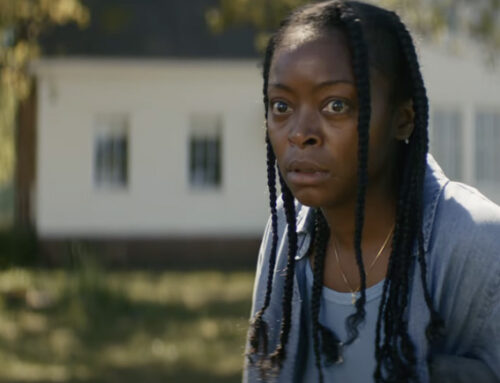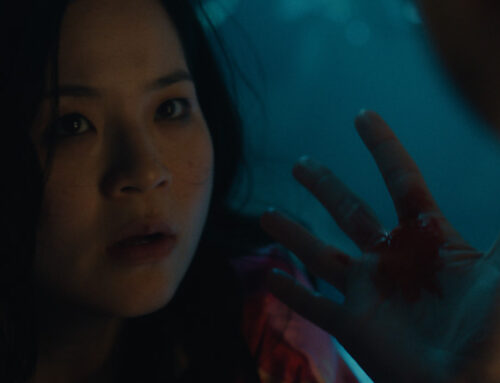We had the chance to speak with the talented and award-winning composer, Meiro Stamm.
Meiro has scored numerous award-winning movies, television shows, stage shows, and digital productions for over 20 years. Some of his notable projects include Xavier Riddle and the Secret Museum which is nominated for “Best Original Music – Animation” in the upcoming Canadian Screen Awards, Super Science Friends which won “Best Soundtrack” at the 2017 Festival Brasil de Cinema Internacional, and Princess Sparkly Butt & The Hot Dog Kid which won “Outstanding Achievement in Music” at the 2017 New York City Web Fest. He also recently co-scored Lifetime’s film A Christmas Dance Reunion with Antonio Naranjo, which reunited High School Musical stars Corbin Bleu and Monique Coleman.
Meiro’s next project, Fallen Angels Murder Club, premieres April 2nd on Lifetime. The series is about a book club of ex-convicts who end up participating in a murder mystery investigation. Meiro composed the upcoming series, using the power of music to enhance the thrills and suspense of this murder mystery.
Read on to learn more about Meiro’s journey, his composing process, and his upcoming work on Fallen Angels Murder Club.
What did your career journey look like that has brought you to where you are today?
I really got into music after seeing Jimi Hendrix on TV when I was twelve. I’d already been playing guitar for a while, but that made me get serious. My ears were pretty wide, so I listened to all kinds of music – jazz, classical, rock, and also folk and classical music from around the world. I was musically curious so ended up studying Indian tabla drums and even playing in an Indonesian Gamelan orchestra for a while. I was really fortunate that in my hometown of Toronto there were, and are, large communities of people from all over the world – so hearing and participating in all kinds of music was not difficult.
Eventually, I realized that composing, rather than playing, was my real interest. I wrote and recorded an album in my early twenties that mixed Western classical orchestra with electric guitar, tabla, Chinese dulcimer, and choir. This was in the 1990s, so not at all common at the time. A local music supervisor, Ron Proulx, heard the album and invited me to pitch on a theme for a TV movie. I got the gig and that led to me getting into film and TV scoring, which turned out to be the career I’d always wanted without my knowing it. That was in 1999, and since then, I’ve scored dozens of TV series and films. I’ve done a lot of children’s animation which is a ton of fun and something I really enjoy. The other thing that I’ve done a lot of is Christmas movies.
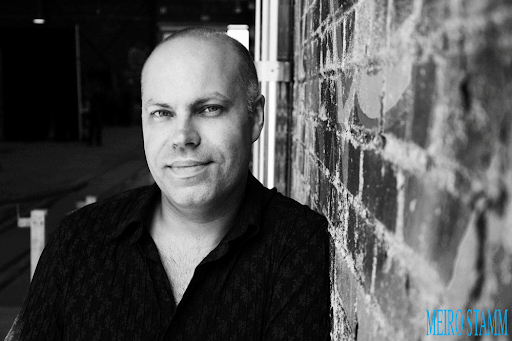
Meiro Stamm
Can you describe your upcoming project, “Fallen Angels Murder Club,” and discuss how you got involved in composing for the series?
Fallen Angels Murder Club is a series of TV movies based on the book series “The Fallen Angels Book Club” by R. Franklin James. The film stars Toni Braxton and was written and directed by Rhonda Baraka. The book club is a group of reformed ex-cons who solve mysteries and are always one step ahead of the police, so the films are filled with lots of intrigue and suspense.
I’ve worked on lots of projects with the exec producer, Beth Stevenson. Our first project was my first animated series, “Franny’s Feet”, which I scored together with Amin Bhatia in 2003. Franny was very successful and ended up airing in something like 100 countries. Funny enough, Chris Robinson, the music supervisor on Fallen Angels, was working for Ron Proulx when I got that first scoring job. So Fallen Angels is a really nice full-circle career moment with long-time colleagues. It’s really amazing to look back and see all the projects we’ve done together.
Can you walk us a bit through the elements of the score on “Fallen Angels Murder Club” and how they supported the narrative?
The Fallen Angels Murder Club score is in the style of many contemporary dramas. It has discernible themes but not necessarily melodic ones. The score is driven by rhythm and recognizable sonic textures. I blended a lot of organic sounds with synths. Sometimes I played a real instrument, and sometimes I used samples – though usually a bit of both. I played mainly guitar, bass, and the guitar viol which is a bowed guitar that sounds something like a cello. You don’t really hear these instruments in the score as you’d expect to because, except for on a very few cues, I processed them heavily with a lot of effects to the point where they’re often unrecognizable. So oddly enough, what you might hear as a natural-sounding instrument within a cue is actually a sample, and what appear to be synths are actually real instruments.
Voice is another element that is featured in the score. I was fortunate enough to be able to work with Cheyenne Jolene who’s a great R&B singer based in LA. Cheyenne sang on some of the cues and it was great to have her voice give an extra dimension to the emotional impact of some of the dramatic cues, as well as a great deal of fun for the lighter moments.
There are five or six main musical themes that most of the score is built on. There’s a theme for the detectives, another for the Fallen Angels, the murder theme, the love theme, and so on. They’re all very simple in their musical building blocks, so they combine really easily to support and highlight the narrative, particularly through some of the twists and turns of the longer scenes.
How does your job as a composer add to the intensity and horror of a scene? Are there certain methods you use to do this?
That really depends on the context of the scene within the entire story arc. Sometimes not having any music can make a scene feel really uncomfortable, and sometimes lots of music is what’s needed. In the case of Fallen Angels, some of the most intense scenes were the murder ones and the final showdown with the villain. I used the same theme for both, which was very understated but also built from almost nothing to really intense. I played a very simple bass part that I then processed so that it was pretty much just a low pulse. Over that were shifting chords played at first by ambient synths and guitars, and then by strings as the cue progressed. The overall effect was kind of a throb that just built and built as though you were hearing your own heartbeat louder and louder in your ears.
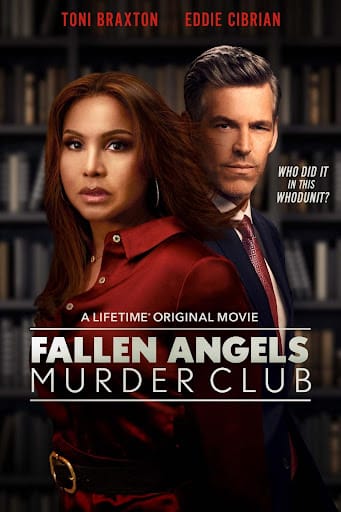
Courtesy of Lifetime
How does composing for Fallen Angels Murder Club compare to other projects you have worked on?
Composing the score for Fallen Angels required a lot less notes than on other projects! The scores I’ve written for most of the animated series, as well as the Christmas movies, tend to be very melodic. The melodies and harmonies need to develop as the cues progress, as does the instrumentation. In animation, many of the cues, despite having generally short durations, are huge because exaggeration is such a part of what drives animation both visually and sonically. So there are a lot of notes per second so to speak!
The Fallen Angels scores have very little melody and minimal harmony – a two-minute cue might only have four or five chords. I spent a lot of time early on finding sounds and textures that I could use to build the cues and have them progress dramatically without writing more notes.
You were just nominated for a Canadian Screen Award for Best Original Music, Animation – congratulations! How does it feel to receive this recognition?
Thank you! It feels great, of course, but what’s really special about a nomination for the Canadian Screen Awards is that it’s peer recognition. So being nominated by composers I’ve sometimes collaborated with and often competed against is really nice. And Xavier Riddle is such a beautiful show. The stories are inspiring, and the artwork is gorgeous, so in many ways, it’s easy to compose a good score when what is on screen is already really great. The whole creative team is wonderful to work with and everybody’s contribution is really valued and encouraged. Cory Bobiak, the creative director at 9 Story, really wanted each episode to play like a mini-feature film rather than a pre-school show. So musically, I get to play the danger, the drama, the emotion, all very seriously, which is great. Of course, everything needs to be age-appropriate, so there are lots of jokes as well so the mood never gets too heavy. I think that the humor is more effective because the drama is serious. Contrast is a very powerful storytelling tool.
Where can we find you on social media?
I’m on Instagram @ meiro_stamm_composer, on LinkedIn https://www.linkedin.com/in/meiro-stamm-51654b7, and of course, my own website www.geoharmonic.com.
–
Thanks for reading! Learn more about Meiro on IMDb.

